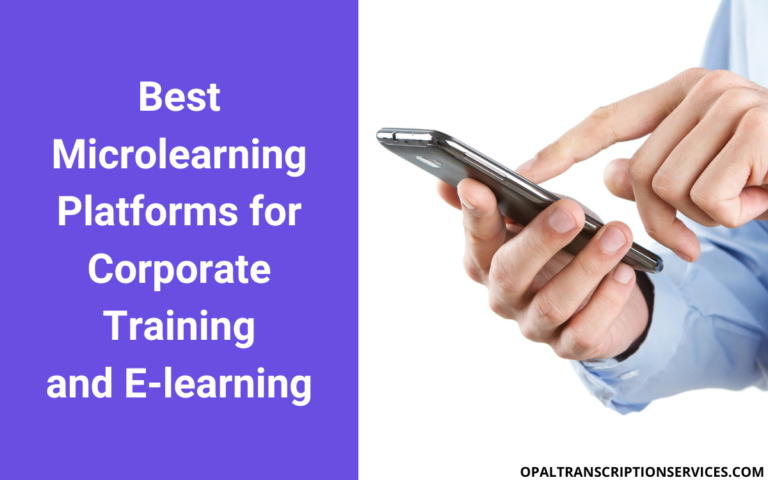3 Best CRM for Virtual Assistants
As the owner of a virtual assistant business, you’re multitasking on a daily, and sometimes hourly, basis. You understand the importance of staying organized for yourself and helping your clients to do the same. For these reasons, today’s best CRM software for virtual assistants can be your secret weapon to serving more clients and growing your business with less effort.
In this post we’ll cover the benefits of using CRM software, features to consider when choosing the best software for your VA business, and three of the top CRM tools on the market for virtual assistants.
Let’s dive in!
Note: While you’re here, check out our recommendations for best laptops for virtual assistants.
What are the benefits of using a CRM for virtual assistants?
Large, established businesses and brands aren’t the only companies that benefit from CRM software. Your CRM is like your business’ brain, remembering client and project details so you don’t have to. Virtual assistants can apply the power of customer relationship management to achieve the following goals:
Keep all lead and client information, activities, and correspondence organized and in one place. Managing a handful of business contacts using a spreadsheet is easy enough, but as your virtual assistant business grows, you’ll need a more robust database for tracking all that data. A CRM lets you capture leads and track client contact info, correspondence, work histories, preferences, related documentation, and anything else about them that might be useful to you later.
Scale your business. CRM software is the best-kept secret of the most successful businesses and professionals across all industries. With the help of the best CRM software for virtual assistants, you can organize, automate, delegate, optimize, and ultimately be more productive.
Track, measure, and optimize your business. CRM tools let you assign custom categories or tags to your clients, as well as filter them by data like status, location, project spend to date, source, industry, company size, and more. You can use this information to inform your marketing campaigns and focus on the 20% of efforts that bring 80% of business results.
Manage projects and/or bill clients. Many modern CRM platforms have project management and collaboration tools such as calendars, project milestones, docs, custom workflows, automations, meeting scheduling, and time tracking. Some CRMs even let you create and automate invoices and accept payments directly from the platform.
Improve customer experience. Using CRM software, you can track clients’ preferences and work histories, view past and current correspondence, and even send automated birthday cards or custom promotions. All of this adds up to a great experience for your customers, stimulating positive reviews, repeat business, and referrals.
Improve sales and marketing processes. CRM software can guide customers through every stage of the buyer journey, from prospect to lead to customer to repeat customer to raving fan. Many CRM platforms double as sales pipeline and marketing automation software, letting you automate and delegate aspects of the sales and lead nurturing process. Additionally, you can boost sales by creating and automating upsells and cross-sells.
What is the best CRM software for virtual assistants?
We shopped today’s virtual assistant CRMs based on features and ease of use, and these are our top picks:
Dubsado
Dubsado is a business management platform and CRM for solopreneurs, virtual assistants, and creative professionals. It’s a CRM, CMS (client management system), and workflow automation platform in one. In other words, aside from its CRM features, Dubsado also offers bookkeeping and project management functionality.
Using the software, you can put a link on your website where prospects can book a discovery call. Dubsado then sends an automated confirmation and appointment reminders to your leads.
After the call, you can create and send a proposal, contract, invoice, and onboarding forms to your client. You can even send them a link to their very own client portal where you can collaborate on projects or communicate via email.
You can also integrate Square with Dubsado, and your clients can pay you directly through their private portal.
Highlights
- Automate appointment booking with a built-in scheduler
- Sync Dubsado with your email and calendar
- Create and send proposals, contracts, and onboarding forms
- Manage projects and email correspondence and accept payments via a private client portal
- Join the Facebook community to network with others in your industry
- Send invoices and automated reminders
- Create automated workflows, such as onboarding workflows
- Get support seven days a week
- Integrate with your favorite apps, like QuickBooks, Zapier, Xero, Zoom, Teams, and more
- Capture leads and create lead categories
- Take call logs
- Manage your bookkeeping
Pricing
The Starter plan costs $20 per month, or just $200 when billed annually (over 15% monthly savings). It gives you unlimited projects and clients. The Premier plan costs $49 per month, or just $400 per year for the annual plan.
Dubsado offers a no-time-limit, no-credit-card free trial.
Hello Bonsai
Hello Bonsai is a business management platform and CRM that is especially popular among freelancers, VAs, and small businesses. The software has client management, project management, and financial management capabilities. It’s simple to get started with, unlike many other platforms that require complicated setup.
Bonsai gives you access to tons of legally vetted contract templates that you can use for your virtual assistant business. You and your clients can even e-sign them.
Highlights
- Client CRM lets you manage the buyer journey from lead to payment
- Create and send proposals, contracts, and invoices
- Organize projects with all related tasks, documents, timesheets, and payments in one place
- Invite your team members to collaborate on projects or track time
- Create a booking page for clients to schedule a meeting according to your availability
- Sync with your calendar
- Create custom intake forms and end-of-project surveys
- Set an hourly rate per project and automatically invoice clients for your timesheets
- Create reusable task templates for managing recurring work
- Track income and expenses and get tax estimates
Pricing
The Starter plan starts at $24 a month, or just $17 per month for the yearly plan. This gives you unlimited clients and projects as well as access to the CRM, task management, and bookkeeping features.
Professional and Business plans are also available.
Bonsai offers a free seven-day trial.
Streak
Streak is a free Chrome extension that turns your Gmail into a CRM, making it a great choice for virtual assistants who use Google Workspace. Using Streak, you can manage your sales pipeline, filter and group your CRM data any way you like, and view upcoming tasks.
The plugin only takes about 30 seconds to install and set up. You can then start using it to manage workflows like sales, HR, project management, real estate, or customer support.
Highlights
- Integrates with Zapier and Google Workspace tools like Google Drive, Sheets, Chat, etc.
- Collaborate with your team via emails, notes, and call logs
- Know when people read your emails
- Schedule and automate emails
- Secure, private, and GDPR compliant
- Access your CRM on the go with the Streak mobile app
- Control team access with custom permissions
Pricing
The free-forever plan gives you a basic CRM with 500 contacts and mail tracking. Paid plans start at $19 per month, or just $15 when billed annually (save 20%).
Features to consider when choosing a CRM
When shopping for the best CRM software for your virtual assistant business, consider the following:
Extended functionality. Some CRM software doubles as appointment booking software. Others have project management and collaboration features. And some even have complete bookkeeping capabilities. The more features your CRM has, the simpler and less costly it becomes to manage your virtual assistant business.
Integrations. Today’s best VA CRMs can connect to all the other software you use to run your business, including accounting, appointment booking, conferencing, email, and more. At the very least, you should look for a CRM that integrates with Zapier so you can connect to any software you choose.
Support. When evaluating CRM software, make sure to find out when and how you can access support. The best support teams are available seven days a week and offer multiple methods of contact, such as phone, email, and live chat. When you’re trialing the software, get in touch with the team to see how quickly they respond and how knowledgeable they appear to be about the product.
Ease of use. No matter how cheap or attractive or feature-rich a CRM is, if it’s not intuitive, you and your team likely won’t use it, and your money will be wasted. The best way to get a handle on how easy a specific platform is to use is to sign up for the free trial and take it for a spin.
In addition, keep in mind that too many features and too much complexity isn’t always a good thing. Get clear on the features you absolutely must have, and choose a CRM that excels in those features without tacking on a lot of unnecessary bells and whistles.
Final thoughts
When is the best time to make the leap and add CRM software to your virtual assistant business?
If you’re reading this article with interest, then there’s a good chance you already need some of the features and peace of mind that a good CRM for virtual assistants can provide. Choosing the right business software is highly subjective, so we recommend taking advantage of the free trials that many platforms offer before making your decision.
And if you’re just getting started with your VA business, check out our post on the best free training for VAs.




